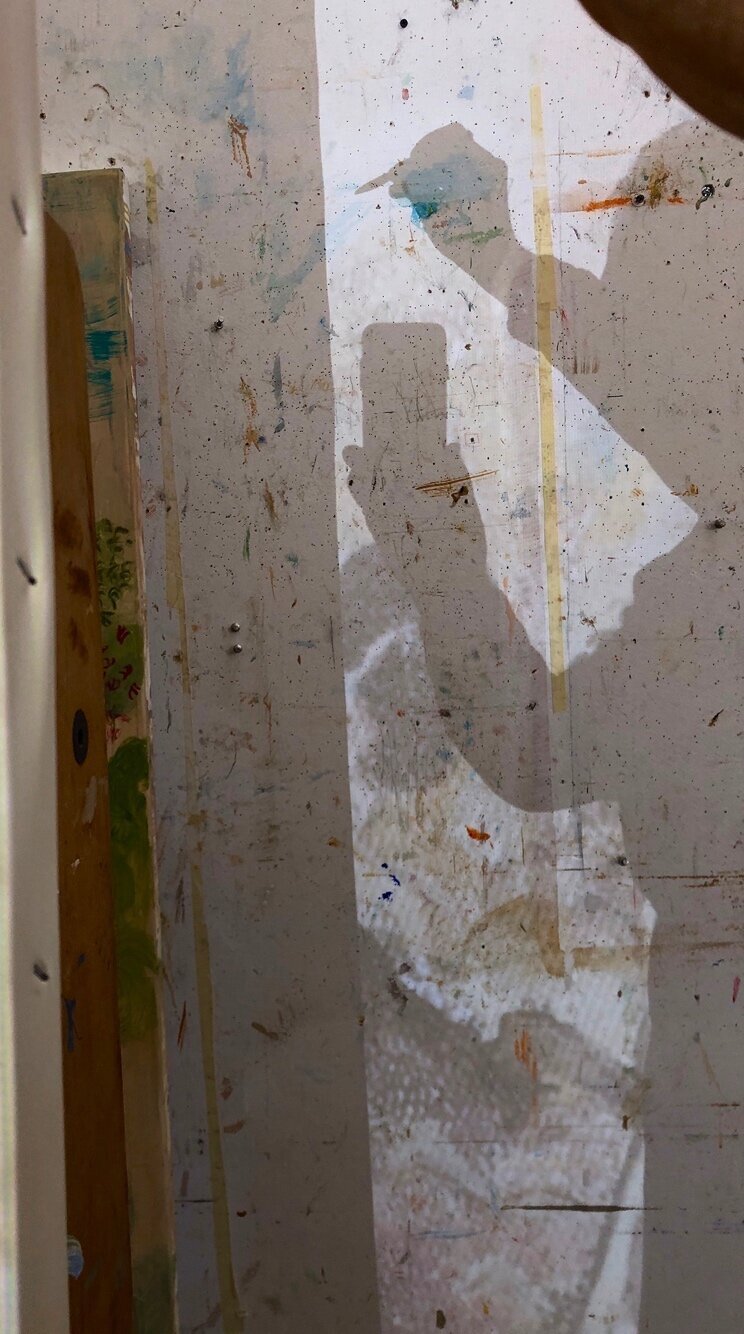watercolor 27 13 x 20”
buddha shakyamuni descending from the mountains, hatakeyama memorial museum of fine art, tokyo
2:03 PM: chan (zen) buddhism originated in china in the seventh century. when it spread to japan, the japanese understood and pronounced chan as zen. i bring it up today, as it occurred to me that what i am doing, or to be precise, not doing as these watercolors progress, is a kind of moving meditation. as my mind says “oh, philip, you need to define this rock just a little bit more,” increasingly i say “thank you for sharing,” or simply,”fuck off!”
as in the zen meditation practice, i move through stages towards enlightenment. will i ever attain it? not really the point. this morning during my daily meditation at the house, before coming to the studio, i received the answer to my 48 hour old question: where did i put the s/s coffee grinder basket? i had been searching everywhere for it with no success. as soon as i closed my eyes, not only did i recall where i had put it, i saw it. this is just a small example of how knowing can emerge, given the opportunity.
enlightenment could be seen as the ultimate knowing.
on the LEFT, a hanging scroll in ink on paper by zhongfeng mingben. it is one of the very few surviving 14th century zen paintings preserved in japan.
“the sketchy and scratchy zen paintings exude the chan spirit: less use of language, more subtle suggestion, leading to higher understanding.”
james c.y. watt in his introduction to: the world of khubilai khan, chinese art in the yuan dynasty, published in conjunction with the exhibition at the metropolitan museum of art, nyc, in 2011.
